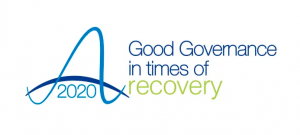Audit committees
12 May 2020

The name of Florence Nightingale, whose birthday it is today (12 May), has been in the news during the coronavirus crisis. The woman who gave her name to the seven emergency hospitals set up around the country came to prominence while serving as a manager and trainer of nurses treating wounded soldiers during the Crimean War.
But there was more to Nightingale than nursing. She was a social reformer and statistician. She was able to triangulate evidence, set standards and improve decision-making processes, particularly around risk. And she famously kept her cool and independence of thinking in times of crisis.
These are all attributes that make for a good audit committee member. That independence of thinking is crucial in assessing the work of management and the assurance provided by the internal and external audit functions. And it’s what is needed right now to address the immediate challenges of crisis management and partnership working.
Distinct role
The role of the audit committee is separate and distinct from that of any other board committee. It must provide assurance in respect of the likely achievement of strategic objectives based both on performance and an assessment of the risks, mitigations and effectiveness of controls.
So, in reviewing the totality of governance arrangements, the audit committee’s role is to scrutinise assurances provided by other committees and ensure that established systems and processes have been followed in generating these assurances. It supports the board by critically reviewing and reporting on the relevance and robustness of the governance structures and processes that the organisation relies upon.
Based on mission-critical objectives, in line with the organisation’s ethics and values, identifying the key risks is a crucial role for the committee to play. It should encourage continuous improvement and be authorised to conduct investigations and take professional advice for matters within its sphere of responsibility.
Most organisations specify a minimum of three independent members of an audit committee (independent means not being employees or deriving most of their income from the organisation). At least one member should have appropriate financial knowledge and capability. Members should share the key characteristics that are expected of a non-executive director but should be even more rigorous in applying them.
A good audit committee member needs to be experienced, quizzical and at times sceptical – in other words, fiercely independent of thought – have a good sense of the organisation’s values, be a good communicator capable of asking probing questions and following up the answers until satisfied and be willing to invest the (inevitably discretionary) time to do a good job.
Crises, risks and issues
Risk and ownership of the board assurance framework form a significant part of the work of an audit committee. The risk register and/or board assurance framework can never hope to anticipate any or all crises that may occur. The COVID-19 pandemic is unprecedented so there is no shame in not having seen it coming.
COVID-19 is clearly a serious issue for any trust to deal with – and the audit committee should be part of the assurance regime covering it – but actions associated with the virus are largely centrally determined so whether it should appear on the BAF is at least questionable. However, the consequences of COVID-19 on the world undoubtably create a new risk landscape, which audit committees should have a view on. Yesterday we published Mervyn King’s views on ‘coronaomics’, where he looked at the impact of these issues on society in general.
Collaborative working
Collaborative or partnership working is going to become a larger part of all NHS lives in the months and years ahead and setting out the role of an audit committee is important but potentially tricky.
The committee is part of a sovereign organisation functioning within a statutory framework, but it operates within an integrated care system (ICS), which has no statutory status and is effectively just an informal collaboration of people. The committee must fulfil its statutory duties but it mustn’t be allowed to hamper the work of the ICS – a balance must be found between making progress and cooperating in order to achieve more for citizens, and the fulfilment of those formal duties.
It’s easy to advocate light-touch governance but the reality may well turn out to be different as the strengths, challenges and influences of the various participants make themselves felt.
An audit committee should first and foremost understand the local arrangements – their overall aims, ambitions, strategies and intentions:
- What do these mean for delegation – what will the ICS be able to decide and what matters remain reserved for participants to make?
- What are the shared decision-making arrangements?
- Does the audit committee understand the accounting arrangements being put in place, especially when the NHS, local authorities and the voluntary sector all have completely different funding mechanisms?
- Is there an agreed risk management set up?
- Will the flow of information that will become available give adequate assurance?
It would be helpful if the partnership had only to provide this reassurance once so it is incumbent on all the local audit committees to agree what assurance they are seeking and perhaps, as the partnership matures, move to an audit committee in common, including how to deploy internal audit resources, is likely to be the right solution.
Call to action
Although statutory bodies, audit committees need to maintain their relevance and influence. The current pandemic offers a helpful nudge to examine business interruption and crisis policies and also to make sure that any arrangements put into place for partnership working are backed up by robust but pragmatic assurance prompts. Boards are encouraged to make these a reality.
If this briefing prompts any questions or comments, please call us on 07732 681120 or email us at advice@good-governance.org.uk. We will aim to respond within 24 hours.
